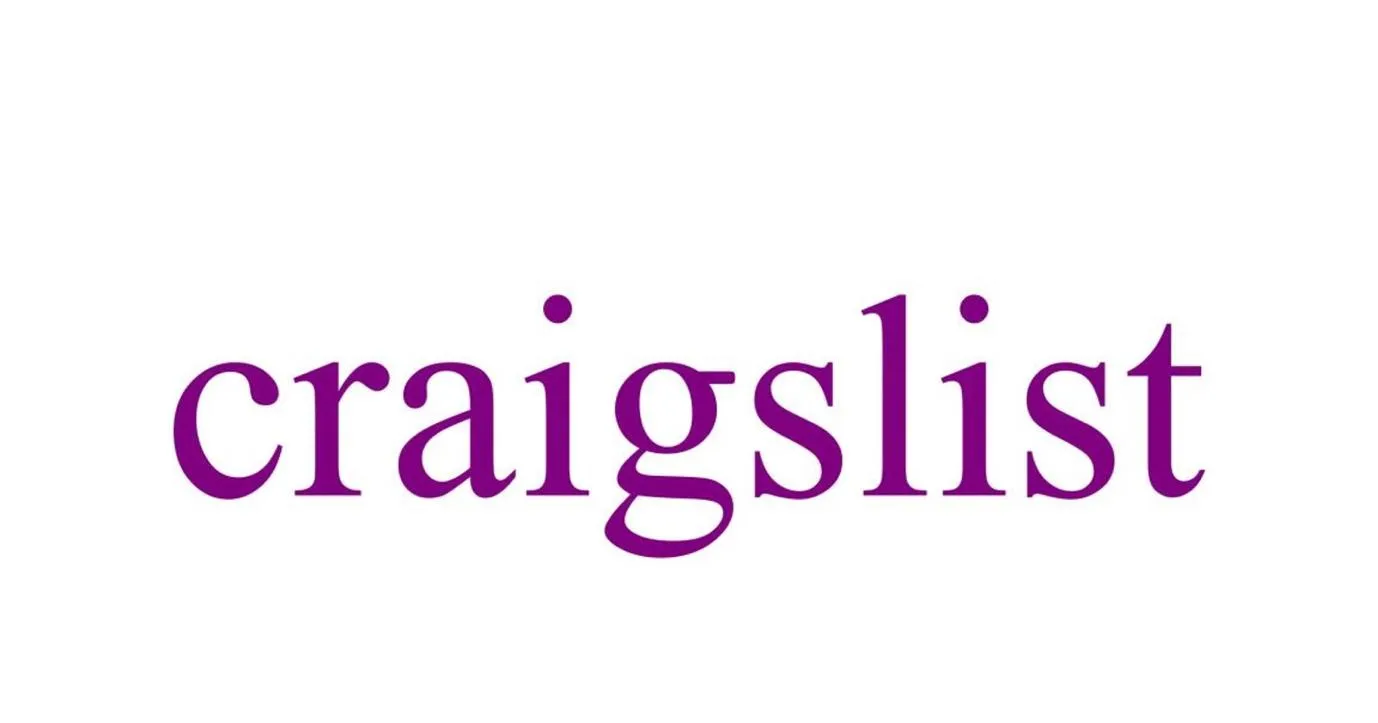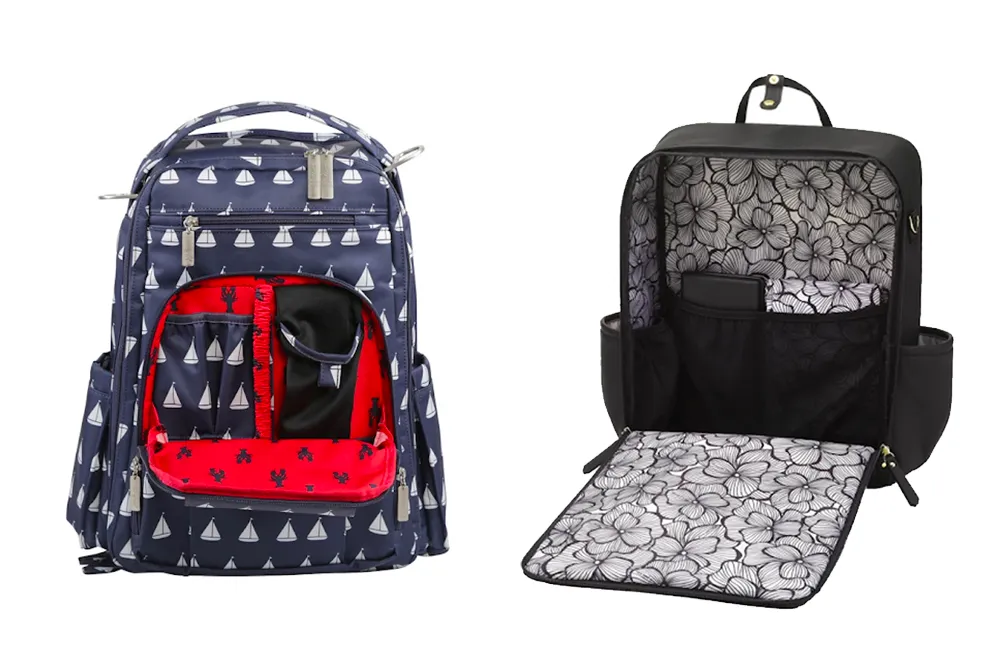Summary
Ready to transform your business? Thinking of selling online? Use this guide to learn how to sell online to expand your business's cash flow. A compilation of the top platforms in Singapore for your business to start an online presence.
Selling online in Singapore
Whether you’re selling fashion items or you own an F&B business, you’re able to find a suitable platform to reach more consumers online. Singapore has grown to be a hotspot for businesses to thrive online. Simply pivoting to online marketplaces could help you to reach the 26% of Singaporeans that shop online at least once a week.
Based on per capita, that’s the highest percentage of online buyers in Southeast Asia.
In addition, selling online helps to activate previously unutilized revenue streams.
In this article, we’ve picked the best online selling platforms in Singapore (read: where most Singaporeans shop).
What's an Online Marketplace and Why is it Important for Businesses?
An online marketplace is a digital platform that connects buyers and sellers in one place. It allows businesses to reach a wider audience and sell their products or services online. With the rise of e-commerce, more and more consumers are turning to online marketplaces to shop and buy products. There are many online selling platforms in Singapore that businesses can use to sell their products, such as Lazada, Shopee, Qoo10, and Carousell.
Online marketplaces are important for businesses in several ways.
Increased exposure
By selling on online marketplaces, businesses can increase their exposure to a larger audience of potential customers.
Reduced marketing costs
Online marketplaces often have their own marketing strategies to attract customers, so businesses can save money on their own marketing efforts.
Lower start-up costs
Online marketplaces provide an alternative to setting up a physical store, which can be costly. Selling on an online marketplace is often more affordable and requires less investment upfront.
Ease of use
Online marketplaces typically have an intuitive user interface and offer a range of tools and services to help businesses manage their sales, making it easier for sellers to get started.
To start selling online in Singapore, businesses can choose from various platforms depending on their needs, budget, and target market. It is important to do research and understand the different platforms before selecting the best fit for the business.
Why is Singapore a Highly Desirable Market for Online Sellers?
Singapore is a highly desirable market for online sellers due to several reasons. Firstly, it has a high internet penetration rate, with over 95% of its population being internet users. This provides businesses with a large online customer base to target. Additionally, Singapore has a strong economy, a stable political environment, and a high GDP per capita, meaning that consumers have higher purchasing power and are more likely to spend online purchases.
Furthermore, Singapore has a well-developed infrastructure for e-commerce, with reliable payment gateways, efficient logistics services, and a strong regulatory framework that protects both consumers and businesses. Singapore is also strategically located in Southeast Asia, providing businesses with easy access to other markets in the region.
All these factors make Singapore an attractive market for online sellers and a great place to start and grow an online business.
How to Start an Online Business in Singapore?
Starting an online business in Singapore is a straightforward process that can be done in a few simple steps.
Choose the type of business entity
Several types of business entities can be registered in Singapore, such as a sole proprietorship, partnership, limited liability partnership, or private limited company.
Register the business entity
Once the business entity has been chosen, it can be registered with the Accounting and Corporate Regulatory Authority (ACRA).
Obtain necessary licenses and permits
Depending on the nature of the business, certain licenses and permits may be required before the business can start operating.
Set up an online presence
To sell online, businesses must set up an online presence, which includes a website, social media accounts, and listings on online marketplaces.
Choose an e-commerce platform
Businesses must select an e-commerce platform that best suits their needs and budget, from which they can sell their products or services online.
Payment gateway
An online payment gateway must be set up to enable customers to make purchases.
Logistics and shipping
A reliable logistics partner must be chosen to ensure that orders are fulfilled efficiently.
By following these steps and seeking professional advice, businesses can start an online business in Singapore and leverage the benefits of e-commerce.
Five Things to Know About Selling Online in Singapore
If you're considering selling your products or services online in Singapore, there are a number of things you'll need to be aware of to ensure that you comply with local regulations and laws. Here are five key things you need to know about selling online in Singapore.
Sale of Goods Act
The Sale of Goods Act is a law that governs the sale of goods in Singapore, including those sold online. As an online seller, you'll need to ensure that your products meet the requirements of the Sale of Goods Act, which includes:
The goods must be of satisfactory quality
This means that the goods must be fit for their intended purpose, and free from defects or damage.
- The goods must be as described: Your product listings must accurately describe the goods being sold, including their features, specifications, and condition.
- The goods must be legally sold: You must have the legal right to sell the goods you're offering, and they must not infringe on any intellectual property rights.
Licence
Depending on the nature of your business, you may need to obtain a license to sell your products or services online in Singapore. For example, if you're selling food or health supplements, you may need to obtain a license from the relevant regulatory authorities.
Similarly, if you're selling certain types of products, such as alcohol or tobacco, you may need to obtain a license from the relevant authorities.
Registration of Business
To legally operate a business in Singapore, you'll need to register your company with the Accounting and Corporate Regulatory Authority (ACRA). This involves obtaining a Unique Entity Number (UEN) and registering your business name, address, and other details with the authorities.
If you're looking for a simple and hassle-free way to register your business in Singapore, you can use a platform like Aspire. Aspire makes it easy to register your business online, with a streamlined process that can be completed in just a few clicks.
Taxes and Duties for Imports
If you're importing goods into Singapore for sale, you'll need to know the applicable taxes and duties. The Singapore Customs website provides detailed information on the different types of taxes and duties that may apply to imported goods, including:
Goods and Services Tax (GST): This is a tax of 9% that is levied on most goods and services sold in Singapore, including imported goods.
Import duties: Depending on the nature of the goods being imported, import duties may also apply. These duties are typically calculated as a percentage of the goods' value.
It's important to factor these taxes and duties into your pricing strategy to ensure that you're not pricing yourself out of the market.
Prohibited Goods
Finally, it's important to be aware of the types of goods that are prohibited from being sold online in Singapore. Some examples of prohibited goods include:
Counterfeit goods: Selling counterfeit goods is illegal in Singapore and can result in heavy fines and legal action.
Pornography: The sale of pornographic materials is illegal in Singapore.
Prescription drugs: Selling prescription drugs without a license from the Health Sciences Authority is illegal.
In addition to these prohibited goods, certain types of goods are restricted in some way. For example, the sale of certain types of firearms and ammunition is strictly regulated and may require a license from the authorities.
By partnering with a platform like Aspire, you can simplify the process of setting up and managing your online business, allowing you to focus on growing your brand and reaching new customers.
Most popular online selling platform for goods in Singapore:
- Lazada
- Qoo10
- Shopee
- Shopify
- Carousell
- eBay
- Zalora
- RedMart
- Craigslist
- Fishpond
Most popular online selling platform for services in Singapore:
- GrabFood
- Deliveroo
- FoodPanda
Selling Online on Lazada

One of the largest e-commerce platforms in Southeast Asia, Lazada offers a wide variety of products available for sale. Lazada gets more than 10 million visitors in Singapore, monthly. It is known for their fashion, consumer electronics, and home & living products.
1. Cost
Registration fees : None
Commission fees : (Commission rate + 2% Payment Service Fee) x Listing Price
2. Payment
Paid out every 14 days
3. Shipping
Fulfilment by Lazada, NinjaVan or Singpost
3. How to register?
Register on Lazada
Lazada has an eCommerce starter package for retailers affected in this period and Lazada University offers a wide range of resources!
4. How to Sell on Lazada?
- Apply to become a seller on the Lazada website
- Set up your online store and create product listings
- Wait for approval from Lazada to start selling
- Once approved, start fulfilling orders and managing your online store
Selling Online on Qoo10

Qoo10 gets more than 7 million visitors in Singapore monthly. It is known for their consumer electronics, baby & toys and healthy & living products. It is a diverse online marketplace that offers a diverse range of products from electronics to fashion, beauty and more.
1. Cost
Registration fees : $100 for Case
Commission fees : Seller Grade x Listing Price
2. Payment
Paid out every 7 days
3. Shipping
QExpress
4. How to register?
Register in Qoo10
Qoo10 requires the purchase of QCash for marketing usage on their platform!
5. How to Sell on Qoo10?
- Register for an account on Qoo10
- Create your online store and product listings
- Start selling and managing your store
- Pay commissions to Qoo10 on each successful transaction
Selling Online on Shopee

Shopee gets more than 7 million visitors in Singapore monthly. It is known for their consumer electronics, home & living products and healthy & beauty products.
1. Cost
Registration fees : None
Commission fees : None
2. Payment
Paid out every 14 days
3. Shipping
NinjaVan, Singpost for deliveries or self-collection
4. How to register?
Register on Shopee
5. How to Sell on Shopee?
- Register for an account on Shopee
- Create your online store and product listings
- Start selling and managing your store
- Pay commissions to Shopee on each successful transaction
Selling Online on Shopify

Shopify is a cloud-based, SaaS shopping cart solution that allows you to customise your own shopping platform easily.
1. Cost
Subscription fees : From USD 29 per month
2. Payment
Paid through credit card to your company bank account
3. Shipping
Self-fulfillment
4. How to register?https://aspireapp.com/corporate-card
Register on Shopify. Note that your own domain name is required.
Shopify offers a 90 days FREE trial during this period, you can also get cashback on your subscription fees when you pay using the Aspire Card (check out our other rewards)!
5. How to Sell on Shopify?
- Sign up for a Shopify account and choose a pricing plan
- Create your online store and add product listings
- Set up payment and shipping options
- Start promoting your store and managing your online business
Sell on GrabFood

GrabFood is a local F&B services company that offers food delivery services. They get more than 14 million visitors monthly and is known for their wide array of cuisines provided and are known for their various cuisines. Restaurants can partner with the platform and deliver their dishes to customers.
1. Cost
Registration fees : $100/outlet if you use your own Android Device and do not print order receipts. $300/outlet for a Grab Order Device that automatically prints order receipts.
Commission fees : 30% on all GrabFood orders
2. Payment
Paid out every 14 days
3. Delivery
Fulfilled by GrabFood drivers
4. How to register?
Register on GrabFood
5.How to Sell on GrabFood?
- Sign up for a GrabFood merchant account
- Provide your menu and restaurant information
- Wait for approval from GrabFood to start selling
- Start fulfilling orders and managing your restaurant's online presence
Sell on Deliveroo

Deliveroo is a local F&B services company that offers food delivery services. They get more than 470 thousand visitors monthly and are known for their strong fulfillment services.
1. Cost
Commission fees : Depending on merchants
2. Payment
Paid out every 14 days
3. Delivery
Fulfilled by Deliveroo drivers
4. How to register?
Register on Deliveroo
5. How to Sell on Deliveroo?
- Apply to become a partner restaurant on the Deliveroo website
- Provide your menu and restaurant information
- Wait for approval from Deliveroo to start selling
- Start fulfilling orders and managing your restaurant's online presence
Carousell

Carousell is a popular platform for buying and selling second-hand goods in Singapore. It's easy to use and offers a wide range of categories, including fashion, electronics, and home decor.
1. Costs
Free for basic listing, additional fees for premium features
2. Payment
Typically within 3-5 business days after successful transaction
3. Delivery
Seller can choose to offer shipping or meet-up options
4. How to Register
Create an account on the Carousell app or website
5. How to Sell on Carousell?
- Download the Carousell app and create an account.
- Take high-quality photos of your item and create a listing.
- Write a detailed description of your item, including its condition and any defects.
- Set a fair price for your item and indicate whether you're open to negotiations.
- Respond promptly to enquiries from potential buyers.
- Meet up with the buyer to exchange the item for payment.
eBay

eBay is a global online marketplace that allows individuals and businesses to sell products to buyers around the world. It's a popular platform for both new and used goods.
1. Costs
Fees for listing, final value fees for successful transactions
2. Payment
Depends on the payment method used; can range from instant to several days
3. Delivery
Seller can choose to offer shipping or pick-up options
4. How to register
Create an account on the eBay website
5. How to Sell on eBay?
- Create an eBay seller account.
- Create a listing for your item, including high-quality photos and a detailed description.
- Set a fair price for your item, taking into account fees and shipping costs.
- Choose your preferred payment and shipping methods.
- Respond promptly to enquiries from potential buyers.
- Ship your item promptly once it's sold.
Zalora

Zalora is a popular online fashion and beauty retailer in Singapore. It offers a wide range of products from both local and international brands.
1. Costs
Commission on each sale, additional fees for premium features
2. Payment
Typically within 30 days of successful transaction
3. Delivery
Zalora provides its own delivery service
4. How to Register
Apply to become a seller on the Zalora website
5. How to Sell on Zalora?
- Apply to become a Zalora seller on their website.
- Once approved, upload your products to the Zalora platform.
- Provide high-quality images and detailed descriptions of your products.
- Set a fair price for your products.
- Respond promptly to customer inquiries and orders.
- Ship your products promptly once they're sold.
Craigslist

Craigslist is an online classifieds platform that allows users to buy and sell goods and services locally. It's popular in many countries around the world, including Singapore.
1. Cost
Free to post listings
2. Payment
Depends on the payment method used; typically done in person
3. Delivery
Seller can choose to offer shipping or meet-up options
4. How to register
No registration required, but a valid email address is needed to post listings
5. How to Sell on Craigslist?
- Go to the Craigslist website for Singapore.
- Choose the appropriate category for your item and create a listing.
- Provide a detailed description of your item and include high-quality photos.
- Set a fair price for your item and indicate whether you're open to negotiations.
- Respond promptly to enquiries from potential buyers.
- Meet up with the buyer to exchange the item for payment.
Fishpond
Fishpond is an online marketplace allowing individuals and businesses to sell products to customers in Singapore and worldwide. It offers a wide range of categories, including books, electronics, and toys.
1. Cost
Commission on each sale, additional fees for premium features
2. Payment
Typically within 30 days of successful transaction
3. Delivery
Fishpond provides its own delivery service
4. How to register
Apply to become a seller on the Fishpond website
5. How to Sell on Fishpond?
- Apply to become a Fishpond seller on their website.
- Once approved, upload your products to the Fishpond platform.
- Provide high-quality images and detailed descriptions of your products.
- Set a fair price for your products, taking into account fees and shipping costs.
- Respond promptly to customer inquiries and orders.
- Ship your products promptly once they're sold.
Other Platforms
FoodPanda

foodpanda is a food delivery platform that lets users order food from their merchant of choice and get it delivered to their doorstep within 15 minutes. According to the Straits Times, the platform sees more than 10 million users on a given day.
How to sell on foodpanda?
Step 1: Sign up via the online form
Step 2: Receive a contract
Step 3: Sign the contract
Step 4: You’re ready to receive orders from hungry foodpanda users
Tips to Keep in Mind When Selling on these Platforms
Selling online in Singapore can be a great way to reach new customers and grow your business. Here are some tips to keep in mind when selling on online platforms:
Do your research
Before you start selling on any platform, be sure to do your research to ensure that it's a good fit for your business. Look at factors like the platform's target audience, fees, and user reviews to determine whether it's a good match.
Optimize your product listings
When creating your product listings, be sure to use high-quality images and descriptive titles and descriptions. This will help your products stand out and make it easier for customers to find what they're looking for.
Offer great customer service
Providing excellent customer service is key to building a successful online business. Be responsive to customer inquiries and feedback, and work to resolve any issues quickly and professionally.
Promote your products
To drive traffic to your online store, you'll need to promote your products. This can include tactics like social media marketing, email campaigns, and paid advertising.
Monitor your sales and analytics
Finally, be sure to keep a close eye on your sales and analytics data to track your performance and identify areas for improvement.
Top-Selling Product Categories in Singapore Online
Knowing the best selling products in Singapore online is key to setting up a successful e-commerce business in the country. According to Janio Asia’s research, here are the categories for high-demand products in Singapore you should consider selling online:
Consumer Electronics
Singaporeans adore technology. You just need to stroll down the streets to see how addicted people are to their phones, headsets and other gadgets. Research indicates that the consumer electronics and media sector has a compounded annual growth rate of 8.82% until 2025. Electronic purchases in the country grew at 11% in 2020, indicating the love for this sector. If you want to start a e-commerce business, this is perhaps one of the best markets to target.
Fashion and Beauty
You can never go wrong with fashion and beauty products. Selling women’s apparel and beauty items can skyrocket your bottom line if you’re up to date with the latest trends. The segment is expected to reach US$3.35 billion in revenue by 2027. A big chunk of this is expected to come from online marketplaces in Singapore.
Personal Care and Cosmetics
Have you seen the clear skin and shiny hair Singaporeans pride themselves in? It’s because the personal care and cosmetics industry in the country is a US$1.14 billion sector! By 2025, the user base for personal care and cosmetic users is likely to reach almost a billion people! This is also a highly aspirational category, which makes it a perfect business opportunity.
Baby Products
Another popular category to venture into for online sales in Singapore is baby products, such as toys, diapers and other accessories. A majority of Singaporeans buy their baby products online, and since the pandemic, this trend has catapulted.
Pet Products
Pet accessories and furniture is a hugely scalable business in Singapore and across the globe. During the pandemic, many individuals adopted animals to do away with their loneliness. Now, they’re taking great care of their furry friends. They are among the top-selling products in Singapore today.
Without further ado, let’s get into the top-selling products in Singapore that will help you decide what to sell online in Singapore.
Best Selling Products in Singapore
1. Loungewear

With remote and hybrid work becoming the new norm since the COVID-19 pandemic, there's been a lasting demand for stylish yet comfortable loungewear. Consumers are increasingly prioritizing comfort without compromising on style, whether they're on a Zoom call or relaxing at home, leading to continued growth in sales of nightwear, loungewear, and robes from independent retailers and fashion-forward brands.
2. Sports fashion and athleisure

While demand for evening and party wear dipped, sales in the sports and health categories for trendy exercise clothes and shoes soared. With the lifestyle shift towards an emphasis on health and fitness, it seems like athleisure will be in trend for quite some time.
3. Shapewear

In 2020 and beyond, waist-trainer belts, padded rear underwear popularised predominantly by American social media influencers will take centre stage. Other types of shapewear to invest in include postpartum girdles and chest enhancers.
4. Stick on nails

With busier schedules and a growing preference for at-home beauty solutions, press-on and stick-on nails have become a popular alternative to traditional salon manicures. They offer instant glam without the wait, available in trendy designs, a wide range of colours, finishes, shapes, and lengths to suit every style and occasion.
5. Pimple patches

Accompanying the rise of self-care, men are also increasingly purchasing cosmetic and beauty products. In Singapore, as of September 2024, 39% of female and 29% of male respondents reported buying cosmetics such as skincare, personal care, and makeup at least two to five times a year. Pimple patches were amongst one of the cosmetic items that were consistently high in demand.
6. Baby wraps

Alongside baby carriers, baby wraps allow mums (and dads) to keep their baby close to them while going hands free. On top of that, it also assists mothers who are breastfeeding as well.
7. Diaper bag

Diaper bags provide a solution for new parents who want a stylish, convenient way to contain their baby’s essentials. The multiple pockets ensure parents can stay organised and items remain secure. Today, there are a variety of diaper bags in the market that are available in various sizes, colours, and even designs.
8. Pet toys

The demand for pets in Singapore is at an all-time high. According to Euromonitor, pet ownership has increased 19% in the past 5 years. While pet beds and pet food have consistent demand, there is much potential for the pet toy sector.
‘Pawrents’ recognise the importance of providing toys for their fur kids as toys provide fun, comfort and stimulation. As a result, there has been growing interest in procuring multiple types of pet toys for their pet’s different needs.
9. Bluetooth speakers

With more people staying indoors due to the pandemic, it resulted in a surge in demand for info-tainment at home. Consequently, consumers are investing in audio devices and sound systems for their homes.
10. Wireless earpieces
With more content being consumed on-the-go, audiophiles are looking to wireless audio devices which offer them value and convenience. The market size for wireless audio devices is slated to grow from USD 57.3 billion in 2020 to USD 134.2 billion by 2025.
11. Mobile phone cases
On average, Singaporeans spend 5.3 hours per day using their mobile phones. Obviously, they’re looking for accessories that would protect their phones. Mobile phone cases and even screen protectors are a great market to tap into.
12. Smart wearables
From smartwatches to health tech, Singaporeans love monitoring their health through wearable tech. The market is booming, and if you can find competitive products to sell, you can make quite a killing by selling them online.

13. Shoes
The footwear market is a diverse market in Singapore that works both as a necessity and a fashion segment. It is expected to grow at a CAGR of 5.32% from 2023-2027. You can foray into stylish heels or sneakers or sell a range of different things.

14. Handbags
Handbags are a classic accessory for women, be it for office use or socialization. They are an evergreen category. In 2020, because of the pandemic, handbag sales dropped briefly, but they have rebounded well since 2022.
15. Makeup remover
Since a lot of Singaporean women turn to make-up, obviously, they will need makeup removers. As more people go back to work and social settings, the demand for makeup and makeup removers has seen a steady rise. This is one of the top-selling products in Singapore now.
16. Eyelash extensions
Another interesting segment to explore in the fashion and beauty category is eyelash extensions. Fake eyelashes are all the rage across the world, and Singaporeans are fast catching up too! You can get them in a variety of thicknesses and colours to match your natural hair shade.
17. Perfumes
Among different personal care products to sell are perfumes and colognes. You can source them from different brands or make your own at home using essential oils, fragrance blends, and alcohol bases. Custom-made scents offer a unique selling point, especially when marketed as artisanal or eco-friendly, catering to consumers looking for personalized and sustainable options.
Conclusion
In conclusion, selling online in Singapore presents an exciting opportunity for businesses of all sizes to expand their reach, boost revenue, and tap into a digitally savvy consumer base. With a high rate of internet usage, robust infrastructure, and a variety of trusted e-commerce platforms to choose from, setting up an online store has never been more accessible. Whether you're offering goods or services, this guide provides a practical starting point to help you navigate the digital landscape and find the right platform for your business.










%201.webp)


.webp)